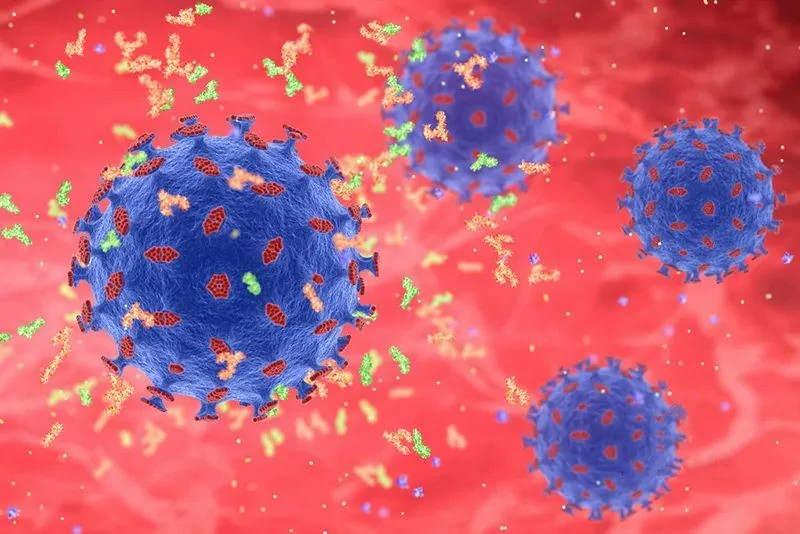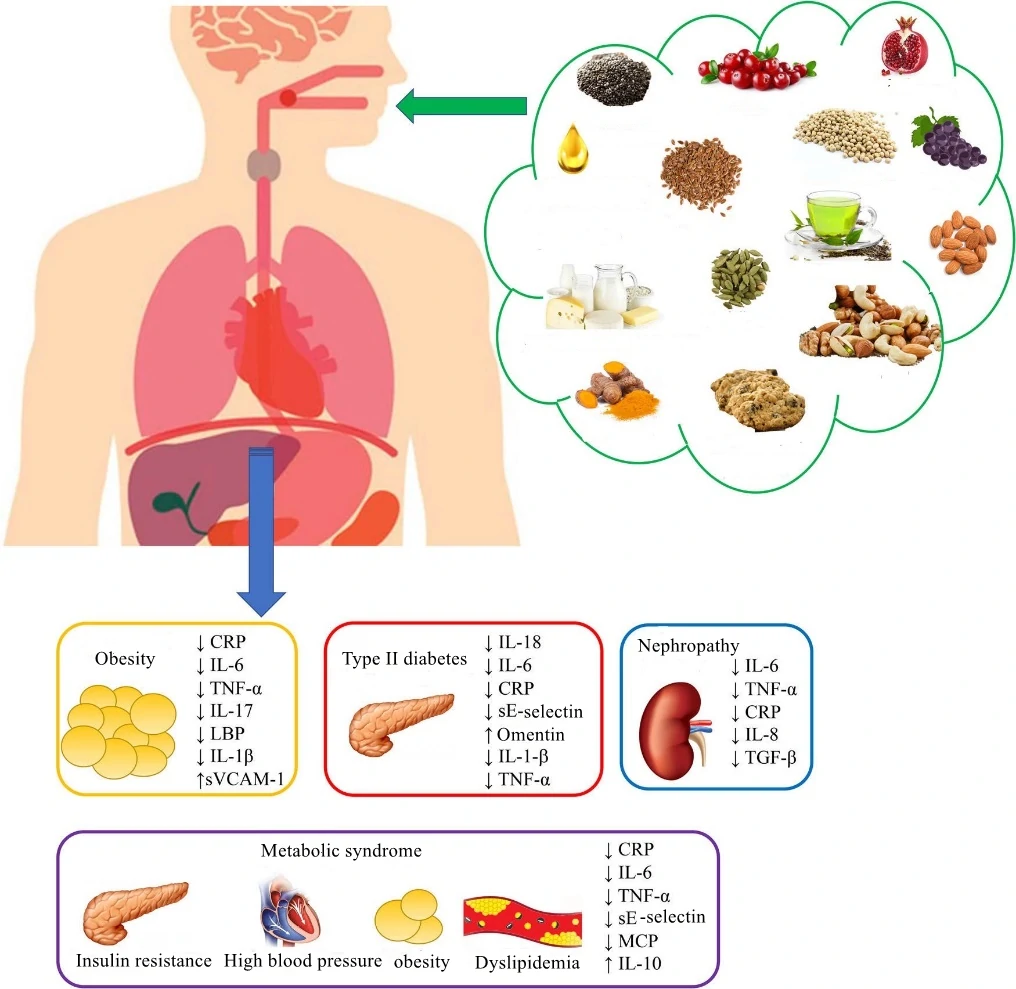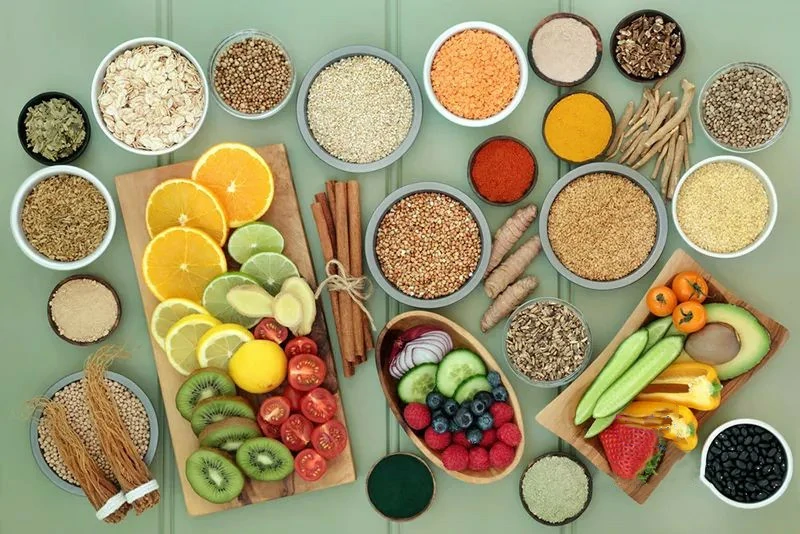Anti-inflammatory diets go viral! What are the anti-inflammatory foods?
Many diseases that plague the human body have a common feature - inflammation.
Recently, many food bloggers have begun to introduce a magical “anti-inflammatory diet” that claims to enhance the body’s immunity and reduce the risk of inflammatory infections.
Not only are there “anti-inflammatory diets,” but there are plenty of foods that can exacerbate inflammation. Are these eye-catching claims true?
What is the “inflammation” of an “anti-inflammatory diet”?
The “inflammation” in an anti-inflammatory diet is not the same as the “inflammation” we often talk about caused by viruses or bacteria.
Inflammation is a defense response of the body’s own immune system to external stimuli. The immune system is like a guard that protects the body. When there is trauma or infection, the immune system will be activated, and the guard will respond quickly, engulfing invading viruses and bacteria or clearing itself. The necrotic tissue, we call this inflammation caused by bacterial or viral invasion as acute inflammation, which comes and goes quickly.

The “inflammation” in the anti-inflammatory diet is chronic inflammation, which is the low level of excessive production of various cytokines (interleukin, tumor necrosis factor TNF-α and interferon γ-INF, etc.) under stress or stress. level of chronic inflammation.
This inflammation can develop gradually over months or years and affect the immune system. At this time, the immune system is in a state of protracted war, always vigilant but tired and irritable, and it is easy to miss the gun.

This repeated and sustained immune response often brings harm to the body. Studies have shown that chronic inflammation is associated with many chronic diseases, such as obesity, type 2 diabetes, cardiovascular disease, chronic respiratory disease, psoriasis, rheumatoid arthritis, cancer Wait.
A 32-year report involving 210,000 participants published in 2020 by the Department of Nutrition at the Harvard School of Public Health shows that cardiovascular health is associated with an inflammatory state in the body, and food can exacerbate or improve the inflammatory state in the body.
What does an “anti-inflammatory diet” include?
Since different foods have different effects on inflammation in the body, it is necessary to understand the anti-inflammatory or pro-inflammatory effects of different foods.
Overall, red meat, overly processed foods, and foods high in sugar and oil tend to lead to more inflammation in the body.
Red meat contains a sialic acid molecule, Neu5Gc, which is not found in the human body. It is recognized by the immune system as a foreign invader, causing inflammation. Animal experiments have shown that long-term consumption of large amounts of red meat will increase the risk of cancer in mice.
Unprocessed foods such as white bread, sugar-sweetened beverages, salad dressings, and processed meat products are generally high in sugar, salt, and fat, and contain a lot of trans fatty acids, which can easily lead to chronic inflammation in the body.

Food components that improve chronic inflammation include omega-3 fatty acids, polyphenols, dietary fiber, and natural antioxidants; these substances can block signaling, inhibit prostate cyclooxygenase expression, downregulate levels of inflammatory mediators, and activate antioxidants. It can also exert an anti-inflammatory effect by adjusting the intestinal flora and producing short-chain fatty acids.
The biological activity of anti-inflammatory foods has been validated in cell and mouse models, but inconclusive in human studies. In a review published in Critical Reviews in Food Science and Nutrition in 2021, the research team selected 88 foods with anti-inflammatory effects from 3,581 studies, including: cranberries, grapes, pomegranates, strawberries, whole grains products, low-fat dairy products, yogurt, sesame seeds, flax seeds, soy foods, turmeric, etc.

Combining the above studies, the researchers divided foods that may have anti-inflammatory properties into 6 categories:
Vegetables, especially cruciferous vegetables such as kale, cabbage, broccoli, etc.;
Fruits, especially berries such as cranberries, strawberries, blueberries, grapes, etc.;
Foods rich in dietary fiber such as whole grains, legumes;
Foods rich in polyphenols and flavonoids such as green tea, soybeans, etc.;
Spices such as turmeric, ginger, cinnamon, nutmeg, sage, and garlic;
Foods are rich in omega-3 fatty acids such as salmon, flaxseed oil, algae oil, grapeseed oil, canola oil, nuts, almonds, etc.
Does the “Anti-Inflammatory Diet” Really Work?
Although the Anti-Inflammatory Diet is very fashionable, However, it is not a specific dietary pattern. The Mediterranean diet, DASH diet (A salt-reduced diet for people with high blood pressure), the Okinawan diet, the traditional Nordic diet, and the traditional Mexican diet are all anti-inflammatory diets.
These dietary patterns share the same characteristics: a plant-based diet with an emphasis on fruits and vegetables, whole grains, foods rich in omega-3 fatty acids, lean meats, and spices.

Although the effect of diet on chronic inflammation has not been clearly quantified, some studies have shown positive effects. A 2016 study found that after one year of anti-inflammatory diet in patients with type 2 diabetes, the inflammatory factor-CRP in their blood was reduced by 37%. produced a suppressive effect.
These results are exciting, but the human body is very complex. To improve immunity and reduce the occurrence of chronic inflammation, one should not be superstitious about a certain legendary diet. In addition to a balanced diet, it is best to start from four aspects:
Exercise: 30 minutes of moderate exercise every day, aerobic exercise is very effective in improving immunity.
Reduced pressure: Long-term stress and tension will increase the level of inflammation in the human body. Maintaining an optimistic attitude and good habits is conducive to controlling the level of inflammatory factors in the body. Regular sleep also helps to slow down the accumulation of inflammatory factors.
Weight control: Obesity can lead to hormonal and immune system disturbances and exacerbate chronic inflammation, so balance diet and exercise to maintain an appropriate weight and BMI.
Get rid of bad habits and have regular physical examinations: smoking and drinking are recognized bad habits, which will increase the level of inflammatory cytokines in the blood; carry out regular physical examinations to detect potential risks of the body in time; if you have suffered from gastritis, pharyngitis, hepatitis Other inflammations or autoimmune diseases such as lupus erythematosus, arthritis, etc., require more detailed and scientific lifestyle and eating habits.
Allergy is also an important cause of chronic inflammation, so for allergic people, eliminating allergens is an important way to resist chronic inflammation.